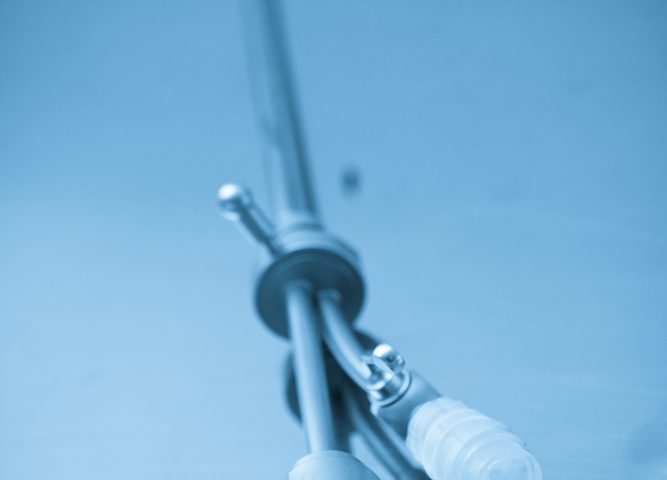A comparison between two different surgical methods — monopolar and bipolar transurethral resection of prostate (TURP) — showed that the latter, coupled with 0.9% sodium chloride, had minimal disruptive effects on sodium levels in the blood of patients with benign prostatic hyperplasia (BPH).
“Our results confirmed that bipolar resection is much more advantageous in patients undergoing TURP … and thus minimizes the risk of TUR syndrome compared with monopolar resection,” wrote the authors of the study, “Bipolar versus monopolar resection of benign prostate hyperplasia: a comparison of plasma electrolytes, hemoglobin and TUR syndrome,” published in the journal Springer Plus.
TURP is a surgical procedure where an instrument is inserted up the urethra and the section of the prostate that is blocking the urine flow is removed. It is often used in BPH patients who do not respond to other treatments.
Monopolar TURP is the more conventional method and involves a wire loop with an electric current flowing through it in one direction. The tissue to be removed is cut with this wire loop. The site of the surgery is irrigated with a non-conducting fluid to prevent the electrical current to harm other tissues. However, lengthy exposure can still cause tissue damage and TUR syndrome, where the irrigation fluids are absorbed into the prostate and may cause electrolyte imbalance.
Bipolar TURP is a newer method where a bipolar current is used to remove the obstructing tissue. It allows the use of saline solution instead of non-conducting fluids and therefore reduces the risk of complication such as TUR syndrome.
For this clinical study (NCT02681471), a team of researchers at Istanbul University Faculty of Medicine in Turkey led by Dr. Kamil Mehmet Tugrul recruited 52 BPH patients who were scheduled for TURP.
They divided the patients into two groups. Those in the first group underwent monopolar TURP with 5% mannitol as irrigation fluid, while those in the second group underwent bipolar TURP with 0.9% sodium chloride as irrigation fluid.
The researchers measured the levels of electrolytes (Na+, K+) and hemoglobin in the blood of the patients before surgery, at the 45th minute of the surgery, and one hour after the end of the surgery.
The results showed that the levels of Na+ electrolytes were significantly lower in the blood of the patients who underwent monopolar TURP, both during and after surgery compared to before surgery. The levels were also significantly lower compared to patients who underwent bipolar TURP. These results indicate that electrolyte balance was disturbed in the blood of patients who underwent monopolar TURP. Moreover, two patients in this group with the lowest Na+ levels were diagnosed with TUR syndrome.
No statistically significant differences were observed in the levels of K+ electrolytes or hemoglobin between and within the groups.
The researchers concluded that bipolar TURP is more advantageous, and as a result of saline solutions, poses fewer risks of TUR syndrome.

